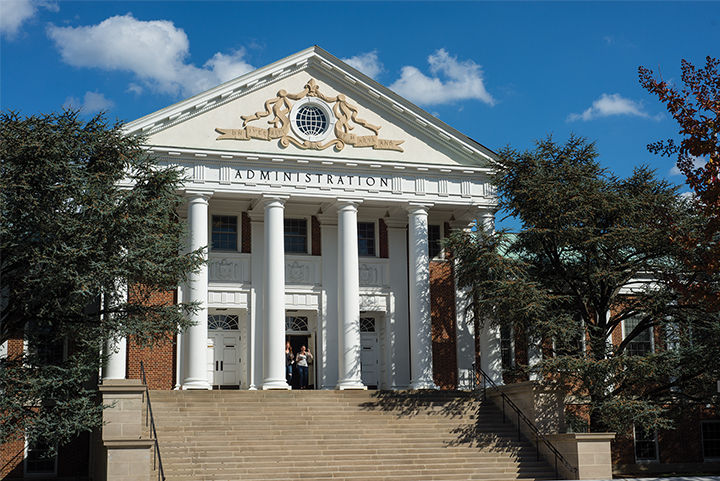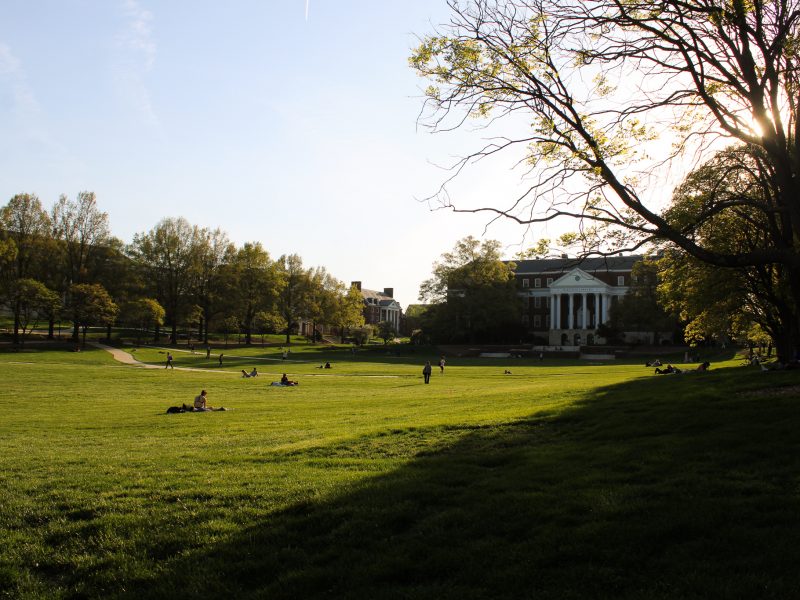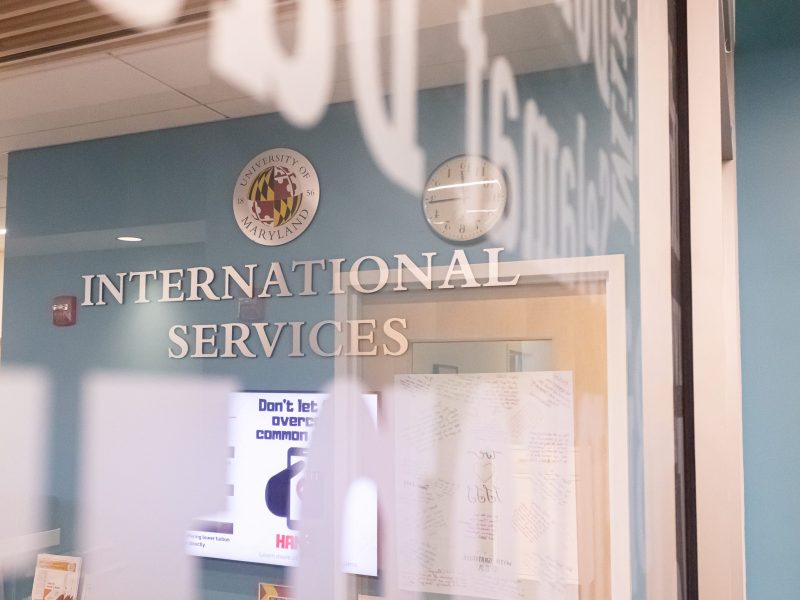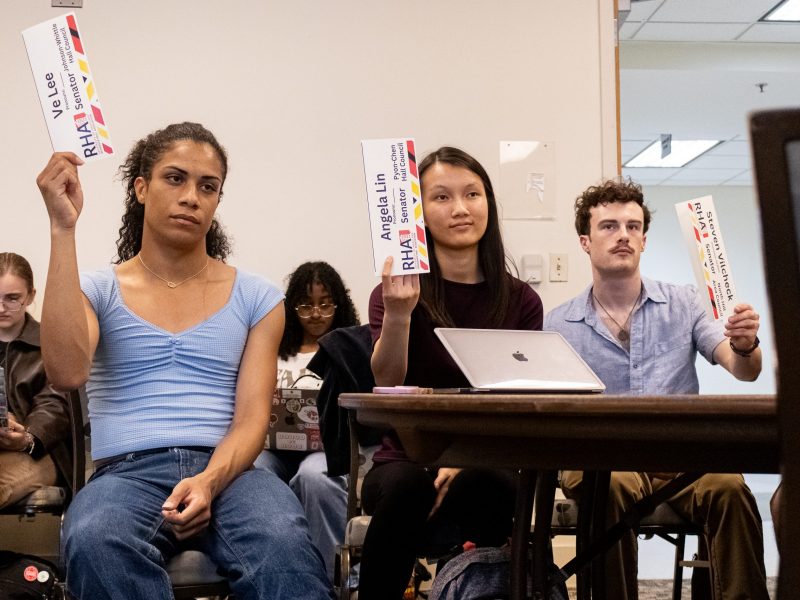The U.S. Education Department’s Office for Civil Rights opened a second case investigating possible violations of how the University of Maryland responds to reports of sexual violence.
The case, opened March 31, is one of 318 investigations at 228 colleges and universities for violations of Title IX, a federal anti-discrimination law that prohibits sexual violence. The department opened its first investigation at this university on Jan. 11, one of five cases added in the final weeks of Barack Obama’s presidency.

Source: Chronicle of Higher Education. Includes both open and resolved cases. (Graphic by Evan Berkowitz/The Diamondback)
University President Wallace Loh said he was aware of the cases and that this university is complying with the federal investigation. There are active cases at all but four Big Ten schools, and seven conference schools have more than one open case.
“I just learned about it,” Loh said. “We’re still complying, and they’ve requested information on everything, not just this one case … this takes them years to process.”
In 2014, it took the federal Office of Civil Rights an average of 1,469 days — more than four years — to investigate sexual violence complaints against institutions of higher education.
Student at this university have increasingly demanded more from the administration in regards to how the Title IX office handles sexual violence cases.
While this university has expelled seven students for sexual assault since the Title IX office was established in 2014, student advocates have criticized the office’s investigations and resolutions, which usually take twice as long to complete as the recommended 60 business days.
“We’re glad the DOE is looking into UMD’s handling of sexual assault cases to aid in the improvement of procedures and draw attention to the need for adequate funding to be a priority of the administration,” Elizabeth Bergman, Preventing Sexual Assault’s victim advocate, wrote in a statement.
During Monday’s 10-hour sexual assault awareness sit-in on McKeldin Mall, an attendee asked Title IX Coordinator Catherine Carroll why she thought this university was under federal investigation for its handling of sexual violence cases.
The process of setting up the Title IX office, hiring staff, writing policies and procedures and developing communications with various departments are all reasons Carroll cited for why this university, and others, have struggled to conduct quick and thorough sexual violence investigations.
“It’s just a lot to build in a very short amount of time and I think that part of what’s happened with Maryland,” Carroll said during the Occupy McKeldin sit-in. “We’re trying to do the best we can and it’s an imperfect process and an imperfect world and the goal is to keep striving and sort of always improving.”
This university’s Title IX office has dealt with an increasing number of reports, complaints and investigations since it opened in 2014. Nationally, annual sexual violence complaints at a postsecondary level have increased more than eightfold since fiscal 2011, according to the OCR’s 2016 annual report.
In September, the Student Government Association proposed adding a mandatory $34 student fee to help fund the office, but the proposal was withdrawn after this university announced it had approved funding for four positions in the Title IX Office, including a deputy director, two sexual misconduct investigators and a standing review committee coordinator.
This university is also facing a $5 million federal lawsuit from a former student, who said he was wrongfully expelled and denied due process after being found responsible for sexual assaulting a female student in 2014.
Some educational experts are uncertain of what will happen to the OCR under the Trump administration. Education Secretary Betsy DeVos has previously refused to commit to the 2011 “Dear Colleague” letter that prohibited sexual violence under Title IX anti-discrimination laws.
“These are really challenging, sensitive issues,” Carroll said during Monday’s sit-in, “and they deserve a lot of scrutiny and they deserve a lot of attention in making sure that we’re doing it right.”



